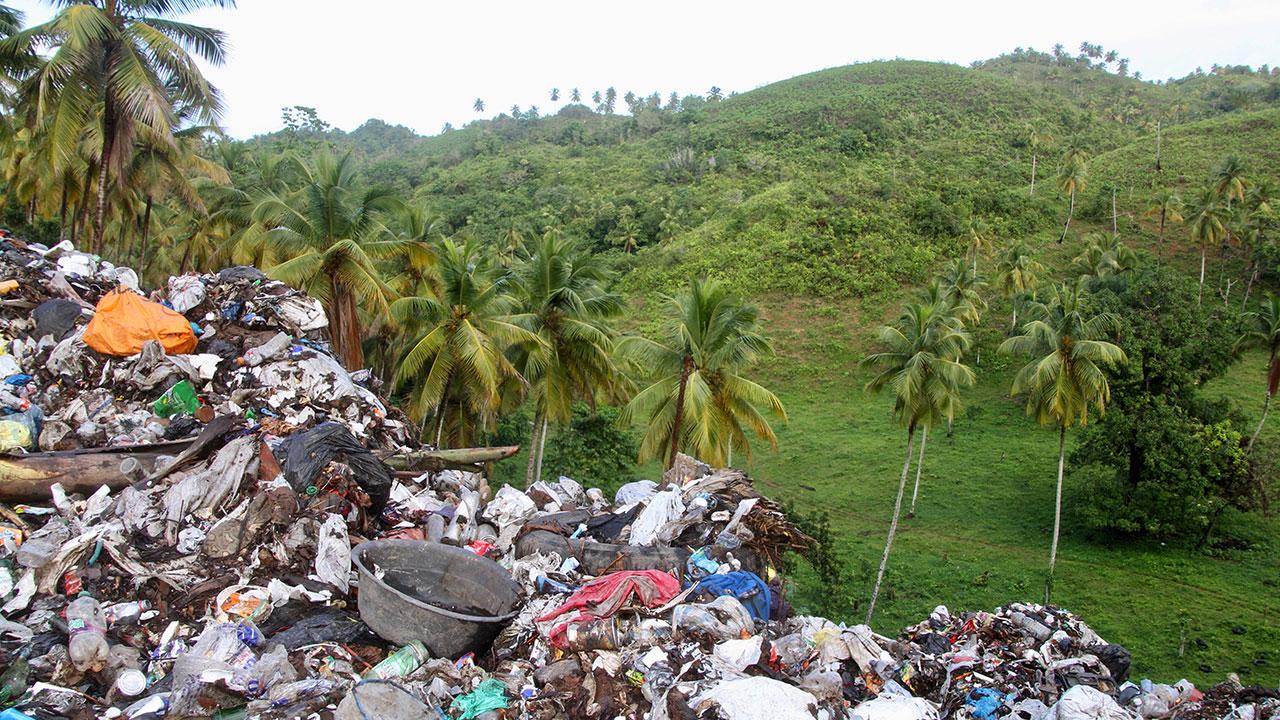
Tetra Tech is implementing U.S. Agency for International Development’s (USAID) flagship program for combating ocean plastics, Clean Cities, Blue Ocean (CCBO), which enhances solid waste solutions and recycling systems; promotes social and behavior change for sustainable reduce, reuse, and recycle (3Rs) practices; improves governance; and forges strategic partnerships with the private sector.
An estimated 8 million metric tons of plastic pour into the ocean each year, originating in rapidly urbanizing areas throughout low- and middle-income countries. Supporting the long-term health of our oceans and coastal cities requires an innovative and collaborative approach to change recycling behaviors, collect and aggregate waste and recyclables, and promote market-based solutions.
USAID’s CCBO program fights ocean plastics pollution and targets ocean plastics directly at their source in cities and towns across Asia, Latin America, and the Caribbean. The objectives of CCBO are backed by growing public awareness, societal concern, and public and private sector mobilization around the prevalence of plastic waste within the world’s oceans and coastal ecosystems. To achieve the objectives of CCBO, Tetra Tech brings its expertise in solid waste solutions, marine conservation, and public sector engagement to work closely with stakeholders in urban areas to develop locally relevant and globally significant solutions.
Tetra Tech is partnering with a consortium of organizations, including the International City/County Management Association, The Manoff Group, and Ocean Conservancy to implement CCBO. Working collaboratively with stakeholders, CCBO aims to reduce land-based sources of ocean plastic pollution by promoting the 3Rs, strengthening local and regional markets for recycled plastic, building awareness and behavior change, strengthening governance, and engaging key private sector actors.
To maximize impact and sustainability across all objectives, CCBO is engaging the private sector, facilitating access to a pipeline of projects, and incentivizing private capital investment in the recycling value chain. Tetra Tech is designing interventions to address each stage of the value chain, prioritizing the most economically viable and environmentally sustainable solutions to address leakage points of plastic and other waste. Through CCBO’s development and implementation of locally relevant solutions to enhance solid waste solutions and promote the 3Rs, cleaner, more efficient waste streams are established.
CCBO recognizes that without strengthened policy and enabling environments, progress will remain challenging. CCBO works with its national and local partners to institutionalize inclusive policies and their implementation through ongoing stakeholder engagement, workshops, and provision of grants for stakeholder advocacy. At the national level, Tetra Tech fosters policy and regulatory change to promote and strengthen markets and incentivize private sector participation in recycled plastics, as well as safeguard livelihoods and working conditions of vulnerable citizens in the waste management sector. At the local level, Tetra Tech supports uniform standards for safe, equitable, and fair conditions for those working in the waste and recycling sectors, with incentives to help build strengthened and alternative markets for reusable and recycled materials.
CCBO also recognizes the unique role that women play in solid waste solutions. They make up a large portion of informal waste collectors and serve as entrepreneurs higher up the waste value chain but are commonly underrepresented and lack access to the same opportunities as their male counterparts. In its approach and activities, CCBO works to advance women’s economic empowerment in the waste management sector as part of the Women’s Global Development and Prosperity Initiative. CCBO also seeks to address other gender-related challenges present in local communities, including but not limited to those that affect women’s ability to practice effective waste management, women’s ability to work in solid waste solutions and recycling jobs, and women’s and girls’ broader well-being.
CCBO identifies the root sociocultural, political, and economic structures that surround waste management and develops social behavior change communication strategies with audience-specific messaging to generate dialogue with stakeholders and actively address structural and cultural factors.
Tetra Tech applies performance improvement tools to strengthen service delivery, create efficiencies, improve revenue and cost recovery, and strengthen accountability and transparency. CCBO will facilitate peer-to-peer exchange, mentoring, and sharing of best practices. The program will consider projected long-term waste needs, natural and manmade risks, and ensure environmental compliance and climate resilience.
Climate Change Business Journal recognized Tetra Tech with a 2021 Consulting & Engineering Award in Climate Change Adaptation & Resilience for our work to combat ocean plastic pollution and reduce waste-linked greenhouse gases through improved sustainable waste management.

